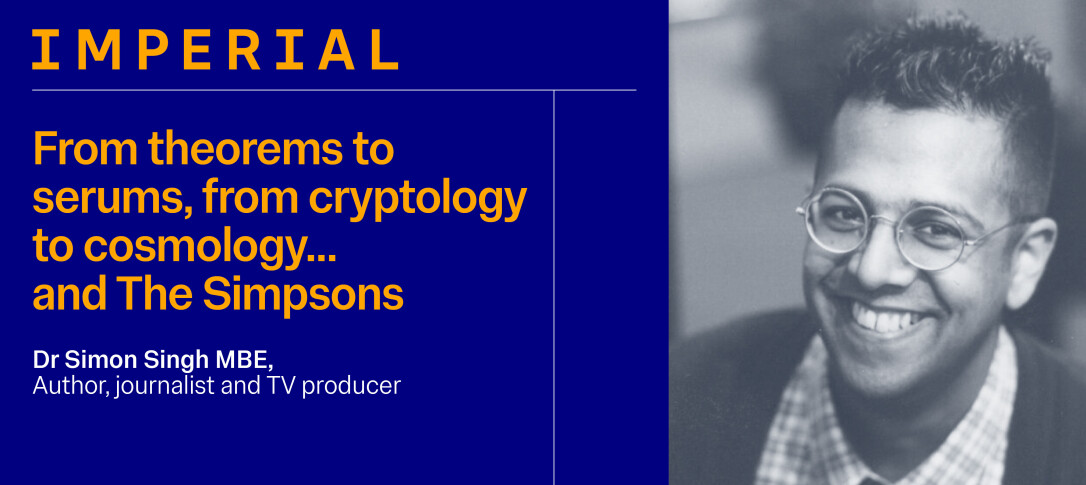
Join Simon Singh, on a whistle-stop tour through two decades of his bestselling books.
Please note that this talk is in-person only and will not be recorded.
Abstract
Fermat’s Last Theorem looks at one of the biggest mathematical puzzles of the millennium; The Code Book shares the secrets of cryptology; Big Bang explores the history of cosmology; Trick or Treatment asks some hard questions about alternative medicine; The Simpsons and Their Mathematical Secrets explains how TV writers, throughout the cartoon’s 25-year history, have smuggled in mathematical jokes. Simon will also talk about his current efforts to increase the number and diversity of excellent mathematicians and physicists.
Biography
Simon Singh was an undergraduate at Imperial College London and completed a PhD in particle physics at Cambridge University. He then joined the BBC science department and worked as a director/producer on Tomorrow’s World and Horizon, winning a BAFTA for his documentary about Fermat’s Last Theorem. He went on to write a book on the same subject, followed by four more popular science/maths books. He is currently developing ways to increase the number and diversity of excellent mathematicians using his website www.parallel.org.uk. In 2003, Simon received an MBE for services to mathematics education and science communication.
Additional Speakers
Welcome from Professor Ian Walmsley, Provost of Imperial College London. Ian is the second Provost of Imperial College London. A world-renowned expert in ultrafast and quantum optics with a deep experience of academic and scientific leadership. He is also Chair of Experimental Physics at Imperial and is the chair and co-founder of ORCA Computing.
Vote of Thanks will be provided by Professor Sarah Hart. Sarah is a mathematician and author. She is also Professor Emerita of Mathematics and Fellow of Birkbeck College, University of London, and former President of the British Society for the History of Mathematics. Her appointment in 2020 as Professor of Geometry at Gresham College made her the first woman to hold this chair since its inception in 1597. Sarah is particularly interested in the cultural, historical and creative impact of mathematics, and is the author of Once Upon a Prime; the Wondrous Connections between Mathematics and Literature.